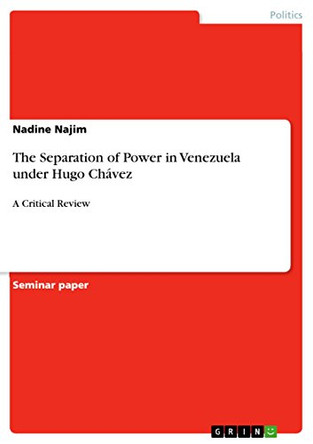Description
Contributors
Carolina Acosta-Alzuru
Julia Buxton
Luis Duno Gottberg
Sujatha Fernandes
Maria Pilar Garcia-Guadilla
Kirk A. Hawkins
Daniel Hellinger
Michael E. Johnson
Luis E. Lander
Margarita Lopez-Maya
Elizabeth Gackstetter Nichols
Coraly Pagan
Guillermo Rosas
Naomi Schiller
David Smilde
Alejandro Velasco
Reveals a nuanced process, richer and more complex than is conveyed in international journalism and scholarship focused on the words and actions of Hugo Chavez
About the Author
David Smilde is Associate Professor of Sociology at the University of Georgia and the president of the Venezuelan Studies Section of the Latin American Studies Association. He is the editor-in-chief of the journal Qualitative Sociology and the author of Reason to Believe: Cultural Agency in Latin American Evangelicalism.
Daniel Hellinger is Professor of Political Science at Webster University in St. Louis and the former president of the Venezuelan Studies Section. He is the author of Comparative Politics of Latin America: Democracy at Last? and a co-editor of Venezuelan Politics in the Chavez Era: Class, Polarization, and Conflict.
Reviews
"Taken together, these chapters make a number of important observations.... The book's main contribution is therefore to highlight some of the tensions that exist within contemporary Venezuelan democracy, and to show the diverse ways in which citizen participation expresses itself. The strength of the book is that it shows that serious empirical research on Venezuela is being undertaken." - Oliver Heath, Journal of Latin American Studies
"[T]he authors of this volume provide rich material that sheds light on the novelty of the strategies pursued by Chavista leaders and the knotty issues brought to the fore by their initiatives." - Steve Ellner, Latin American Politics and Society
"Venezuela's Bolivarian Democracy makes it clear that, while transforming the political landscape, the Chavez era also embodies important continuities with the country's recent past. The serious problems that the country faces and the social movements that support Chavez did not emerge overnight; they are rooted in the inequities of the oil economy that took hold during the twentieth century. This book is a must read for anybody trying to make sense of the ongoing process of change that is remaking Venezuela."-Miguel Tinker Salas, author of The Enduring Legacy: Oil, Culture, and Society in Venezuela
"This book evaluates Hugo Chavez's Venezuela with a clear eye. Through nuanced attention to new empirical research in a rapidly changing context-who speaks, what people believe, who decides, and how power works-it offers a framework for analyzing the intertwined democratic and nondemocratic aspects of politics as it is practiced and lived. This multisited approach-looking from neighborhoods to media, activists to government institutions-could be applied with equal success to the postrevolutionary regimes of Cardenas or Castro, the populist governments of Vargas or Peron, and the liberal democracies of the present."-Jeffrey W. Rubin, Boston University
"Taken together, these chapters make a number of important observations.... The book's main contribution is therefore to highlight some of the tensions that exist within contemporary Venezuelan democracy, and to show the diverse ways in which citizen participation expresses itself. The strength of the book is that it shows that serious empirical research on Venezuela is being undertaken." -- Oliver Heath * Journal of Latin American Studies *
Book Information
ISBN 9780822350415
Author David Smilde
Format Paperback
Page Count 408
Imprint Duke University Press
Publisher Duke University Press
Weight(grams) 590g





